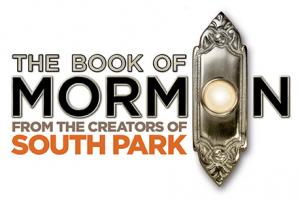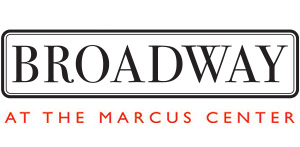
 [rating=3] NOTE I think it is important to state that Lawrence’s feelings about the material in this production may have lowered the number of stars, plus in this touring production “understudies” ended up taking over role in mid-performance (a potential situation in any “live” performance) but as in most cases, the understudy is a solid performer who knows the role and loves the opportunity to do his or her thing. This is NOT a show for kids or anyone who is offended by tough language and lots of it takes place. Think “South Park”, you will understand!
[rating=3] NOTE I think it is important to state that Lawrence’s feelings about the material in this production may have lowered the number of stars, plus in this touring production “understudies” ended up taking over role in mid-performance (a potential situation in any “live” performance) but as in most cases, the understudy is a solid performer who knows the role and loves the opportunity to do his or her thing. This is NOT a show for kids or anyone who is offended by tough language and lots of it takes place. Think “South Park”, you will understand!
For fifteen years now, the “Book of Mormon” has been playing to sold out audiences around the country, and it has arrived in the form of a brief touring performance at the Marcus Center for Performing Arts in Milwaukee. It concerns two Mormon missionaries, Elder Price (David Larsen/Ryan Bondy) and Elder Cunningham (Chad Burris), who are sent to Uganda (Price had fantasies of Orlando) to try and offer the African’s spiritual comfort by introducing them to the “Book of Mormon,” and baptizing them into the Mormon Church. However, they find that the people are plagued by a genocidal war-lord, famine, AIDS, and the plight of female circumcision, and that their immediate needs are physical, not spiritual. This flusters Elder Price, a straight-laced, rigid, stick to the rules, but somewhat idealistic, young man, who tries to offer them hope in the Book of Mormon, but unsurprisingly, a religion indigenous to 19thc America, doesn’t speak to the situation in which these Africans find themselves. Indeed, it turns out that the other missionaries in Uganda, led by Elder McKinley (Daxton Bloomquist), have yet to make a single convert. Discouraged, Price leaves Elder Cunningham (who felt like for the first time in his life felt like he had a best friend), and asks to be reassigned to Orlando. However, he has a dream in which he is sent to Hell along with the other suffering sinners, ranging from Hitler to Johnny Cochrane, for a minor infraction he committed when he was a child, and when he awakes, he is racked with guilt and goes back, but is rejected by Cunningham who is beginning to have some success, so instead tries to convert the war-lord with disastrous consequences.
There is one very funny seen in which Price acts completely devastated and utterly drunk from consuming coffee: caffeine is a taboo in the Mormon Church. Cunningham’s success, which initially seems unlikely given his hyper-nerdy character (hardly a characteristic one associates with successful missionaries in history), is due to his reasoning that he needs to help these people even if it requires making things up. So he begins to invent stories, claiming that they are from the “Book of Mormon” (which he has not read) to deal with the unique situations that the Africans are facing: stories that would indicate that God and Christ had prohibited female circumcision, and offered resolutions to AIDS other than raping virgins and babies (which the villagers are doing), such as having sex with frogs. He quickly wins converts, starting with the villager Nabulungi (Candace Quarrels), who is baptized in an affecting scene in which sexual escalating sexual tension dominates the interaction between her and Cunningham, but is instantly shattered when he dunks her in, presumably, cold water.
Leaders, including the Mission President, (a very stern and wry Christopher Shyer) from the Mormon Church fly in to congratulate them on their success with predictably disastrous results when they found out just what Cunningham has been preaching. Nabulungi feels betrayed when she finds out that the paradise promised by Mormonism is not an earthly one like Salt Like City But the other Mormon Ugandan converts apparently understood that Cunningham’s the stories were metaphors, not to be taken literally. Ultimately, Price comes to agree with Cunningham’s program of enculturation, and they take on the war lord in a final confrontation that is extremely absurd and implausible, but the long of the short of it is, that they triumph over him, rescue the Africans, and stay to help. I am well-aware that the “Book of Mormon” has garnered near universal positive reviews from critics, including those for whom I have the highest regard such as Ben Brantley of the New York Times who called it, “The Best Musical of the Century.” I am likewise aware that the response of public Mormon figures and the LDS church has likewise been “warm” and “measured.” I have already alluded to the parts I found genuinely amusing: Price getting drunk off coffee and the sexual tension between Cunningham and Nabulungi leading up to her baptism during which she is dunked in cold-water: which she no-doubt she finds to be a bit of an anti-climax, rather like her discovery Mormonism isn’t promising an earthly paradise in Salt Lake City but a heavenly one in death. However, ultimately the show neither manages to be a warm-hearted parody of Mormonism, nor a devastating critique of religion, nor that Holy Grail a nuanced in-between (I would have settled for any of the three) because the jokes, which consistently managed to be crass, puerile, offensive, and for the most part unamusing interfered
There was a moment when Cunningham was not able to say the word “Clitoris” without laughing. For me, the script by Matt Stone, Trey Parker, and Robert Lopez rely on the fact that the audience won’t even be able to hear such words without doing the same. The bulk of the humor is nothing but crass, relying on the audience to laugh every time a phallus appears on stage, a curse word is used, the buttocks, nudity, erections, or female genitals are referenced (all of this happens constantly), and jokes about female genital mutilation, child-rape, and AIDS abound. Ultimately, it’s the utter ubiquity of the irreverence (to human decency more so than religion: I can’t help but find it overtly racist, misogynist, and homophobic, and I tend not to see those things in places where other critics do) and of the crudity in the script which make it so appallingly bad, not the irreverence or crudity itself. Both things can be extremely funny in measured doses mixed when mixed with more sophisticated humor. To call the whole thing sophomoric would seem to do a disservice to sophomores, and I am utterly amazed that it doesn’t have an unlikely alliance of Mormons, Feminists, Post-Colonialist Critics, and HIV advocates lined up against it. That said, I am well aware that I am a minority of one in this regard so I will try and base part of my evaluation on the production values which were universally superlative.
The scenic designs (Scott Pask) of Salt Lake City, Africa, and Hell were sublime, exotic, and surreal respectively, as well as complimentary and breathtaking. Likewise, the lighting (Brian MacDavett) managed to produce a hazy, other-worldly, salt-lake-city; an Africa that was shades of intense light and extreme darkness; and a horrific hell that looked very much like the dreamscapes of the non-Mormon nightmares to which I am prone but on a far grander scale. Each member of the cast and ensemble sang a score (Trey Drake, Robert Lopez, and Matt Stone) that I found incredibly unremarkable with gorgeous energy and force, particularly Candace Quarrels, who all but stole the show with her powerful voice, presence, warmth, tragedy, and desperation. One just wishes she had been playing Maria Van Trapp, Dorothy, or Mary Magdalene. The professionalism and artistry which the director and actors brought to this production was illustrated on opening night by the fact that the lead Elder Price, played by David Larsen in the first Act, had to be replaced by his understudy, Ryan Bondy, in the second, yet the whole thing seemed seamless, and both actors were highly credible in the part. There was a very funny Ad-lib by Burris, himself an understudy, in the second act, remarking at Bondy’s first appearance “you look so different.” It was much funnier than anything Drake, Lopez, and Stone wrote. Nonetheless, this is a Broadway show with Broadway level acting ad production values and is probably well worth the trip, particularly as my objections to the show appear to be shared my no-one. The Book of Mormon plays through May 31st at Marcus Center for the Performing Arts, located at 929 N. Water Avenue through Sunday May 31st. Performances are Tuesday’s through Sundays at 8:00 pm with additional Saturday and Sunday Matinees at 2:00. Ticket information is available at http://www.ticketmaster.com/venueartist/57493/1732682?brand=marcuscenter
One note: Ticket prices in Milwaukee for all their Broadway series make the trip up there well worth it.







More Stories
“The Firebugs” reviewed by Julia W. Rath
“The Book of Grace” Al Bresloff with another from Paul LIsnek
“The Last Five Years” MILWAUKEE